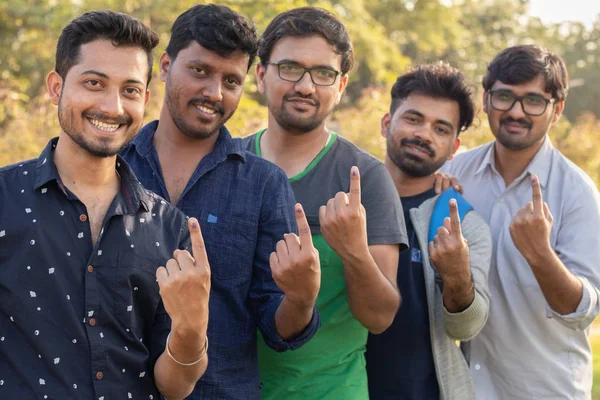
“We’re a generation of scared people. But we’re very resilient. And very united.” When Ugandan climate activist Hilda Flavia Nakabuye spoke these words at the World Mayors Summit, she was not just speaking for herself she was putting into words a thinking that’s sweeping through Gen Z. To Boomers and Millennials, much of these values is a cultural shock. Socialized in other economic realities, with the contrastive norms of work, communication, and protest, prior generations get shocked at Gen Z’s unapologetic values.
But the shifts are not just teenage acts of rebellion these are revolutionizing workplaces, politics, and even what success looks like. From climate optimism to reimagining leadership, here’s a closer look at how Gen Z is pushing back against long-standing assumptions and why these changes matter far beyond their own generation.

1. Realness Over Being Polite
Gen Z communication loses the politeness façades Boomers and even Millennials have used to depend on. Raised in a hyper-connected world, they’ve seen enough BS social media photos to crave authenticity. Dr. Jean Twenge of San Diego State University explains that their focus on authenticity is a pushback against the performative nature of online being. They talk about mental health, identity, and personal struggles freely something generations prior were taught to keep under wraps. This candor can be awkward to those used to more staid interactions, but it is also a call. In open sharing, Gen Z establishes empathy and closeness, challenging others to drop the act and engage in real conversation.

2. Climate Action Is Personal
Environmentalism is not a distant policy debate for Gen Z it’s their reality. They’ve witnessed climate disaster firsthand, like Marinel Ubaldo living through Typhoon Haiyan’s destruction or Franziska Trautmann turning glass waste into sand to restore Louisiana’s coastlines. They opt for climate optimism over climate fear, mobilizing millions on TikTok. Such activism challenges earlier generations to transcend incremental change. Gen Z’s DIY culture whether planting native flowers or setting up recycling banks exemplifies solutions taking root but accelerating rapidly when people join hands.

3. Work-Life Balance Isn’t Negotiable
Gen Z sees balance as a baseline, not an entitlement. Deloitte research suggests they value flexibility and well-being above climbing corporate rungs. The pandemic cemented their preference for hybrid timetables and outcome-based work, compelling businesses to rethink rigid 9-to-5 requirements. For Boomers and Millennials who have built careers on working long hours and face time in the office, it can seem revolutionary. But Gen Z’s insistence on sustainable work practices is forcing conversations about how to avoid burnout and redefine what professional success looks like.

4. Diversity Is a Dealbreaker
At 48% non-white and 22% LGBTQ+, inclusion is not a nice-to-have but a career filter. According to EduBirdie research, 56% will refuse a role if it lacks diverse leadership. They expect workplaces to reflect the real world, from gender-neutral forms to equal hiring. Millennials and Boomers may see DEI as a company program; Gen Z sees it as personal safety and belonging. Companies that reduce diversity risk losing not only talent but also trust with this values-driven generation.

5. Success Means Impact, Not Just Income
Gen Z measures success as happiness, growth, and contributions to society. A Pew Research Center study shows that they prioritize meaningful job satisfaction over pay. Entrepreneurs like Thomas Lawrence, who founded Good People Inc to rival Amazon with ethical products, are representative of this shift. Previous generations have traditionally linked achievement with financial success or titles. Gen Z’s revision injects a more equitable outlook where personal happiness and community value are on par with each other.

6. Mental Health Is Mainstream
Gen Z sees mental health as integral to overall health. They normalize therapy, mental health days, and open talk about depression or anxiety. Studies show they’re 27% more likely than previous generations to talk about these issues and to seek treatment. Boomers and Millennials, who grew up during eras when mental illness was stigmatized, may be appalled by this openness. But it’s building work environments that align psychological safety with productivity.

7. Technology Is a Tool for Change
As digital natives, Gen Z expects workplaces to natively include AI, automation, and collaboration tech. They use these tools not just for productivity but for activism TikTok’s algorithm, for example, enables climate activists to reach audiences larger than their followers. With older generations, technology adoption was always about playing catch-up. With Gen Z, it is a function of leveraging digital reach for purposes, bridging communities, and designing solutions.

8. Breaking Gender Stereotypes
Gen Z embraces gender fluidity, discarding binary tags and pushing for welcoming spaces. Nearly 7% identify as nonbinary, and the majority anticipate the workplace to respect pronouns and provide gender-neutral restrooms. This challenges Boomers and Millennials to re-examine deep-seated gender assumptions. For Gen Z, inclusivity isn’t political correctness it’s a reflection of lived experience.

9. Politics Is Part of Everyday Life
Gen Z is not intimidated by politics. Politicians such as Maxwell Alejandro Frost, the first Gen Z member in Congress, are evidence of their efforts to be represented on issues from global warming to healthcare. 46% participate extensively in activism or avow political views in the workplace based on surveys. Earlier generations avoided discussing politics at work or in social gatherings. Gen Z’s openness to talking about politics is transforming civic discourse, forcing workplaces and communities to accommodate civil, well-versed conversation.
Gen Z values discomfort those who were taught under other rules, but they are also opening up doors to more inclusive, balanced, and significant ways of existing and working. For Millennials and Boomers, understanding these shifts isn’t just about staying up to date it’s about understanding that these values are shaping the future. And in many cases, they’re setting an example for a world more connected, empathetic, and resilient.


